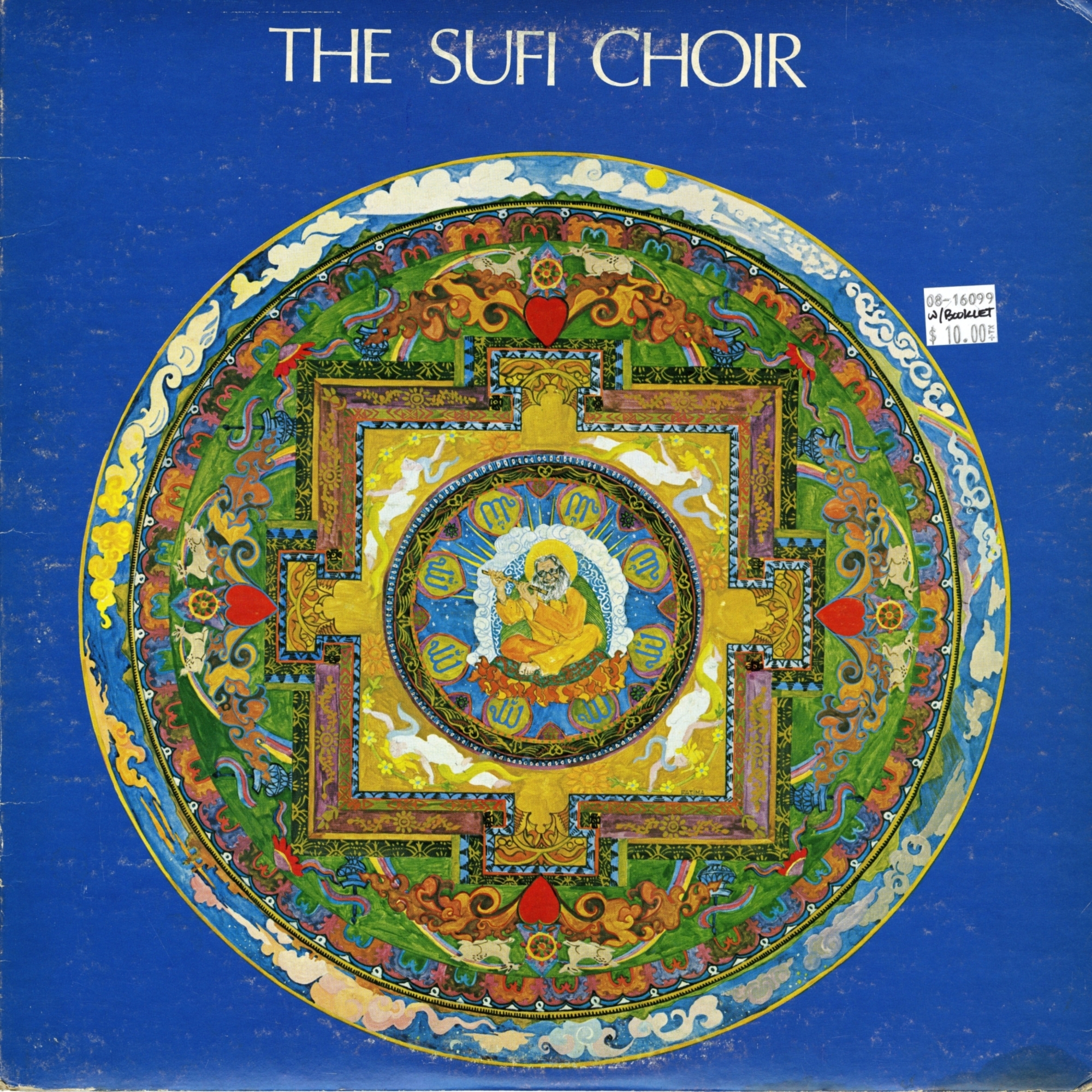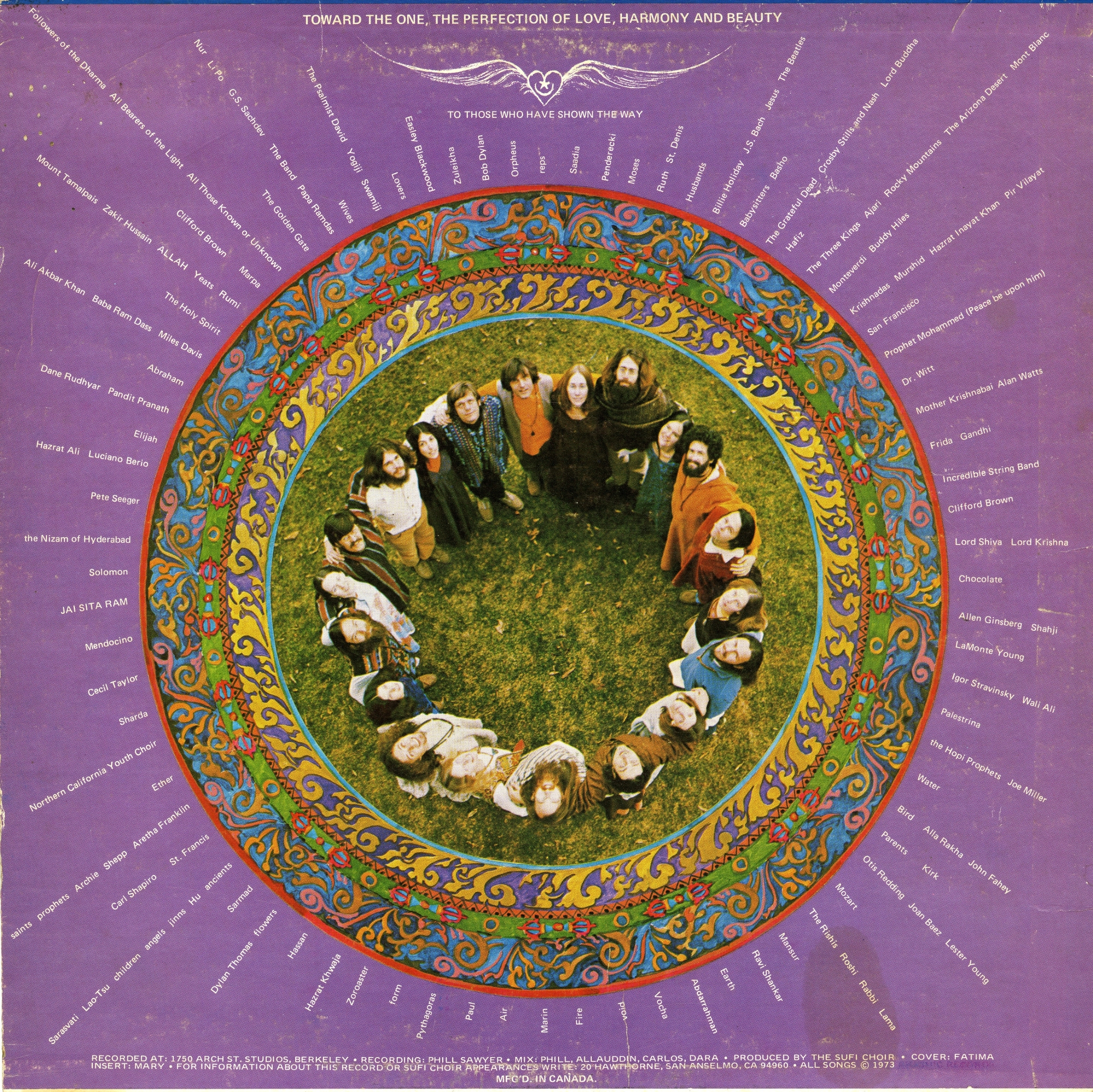Born of privilege (a Rothschild pedigree and a father who was a vice president of Levi Strauss manufacturing), Samuel L. Lewis was one of the more colorful American mystics, who, at the end of his life, shifted from preparing himself for enlightenment to ushering in a new age of enlightenment. Recovering from a heart attack in 1967, Lewis had a vision that would determine his remaining years. God came to Lewis and said: “I make you the spiritual leader of the hippies.” And so he did. Lewis then developed and taught the Dances of Universal Peace throughout California. In 1969, followers of Lewis formed the Sufi Choir in San Francisco and became part of his mission. The original director of the Sufi Choir, William Allaudin Mathieu, had worked previously with Duke Ellington in arrangement and composition.
In this rendition of the 23rd Psalm, the universalism is thick. For here is a tambourine-laden, psychedelic campfire mash-up that seeks to distill the universal message from a text heretofore recognized for its sacred particularity.



